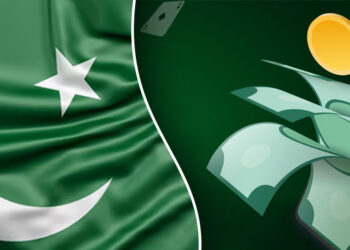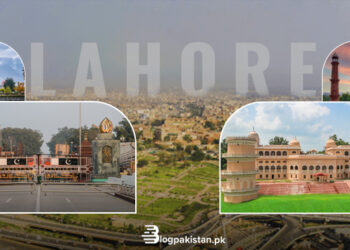The prime minister of the Islamic Republic of Pakistan is the popularly elected politician who is the chief executive of the Government of Pakistan. The prime minister is vested with the responsibility of running the administration through his appointed federal cabinet, formulating national policies to ensure the safeguard of the interests of the nation and its people through the Council of Common Interests as well as making the decision to call nationwide general elections for the bicameral Parliament of Pakistan.
Prime Ministers of Pakistan
You would be surprised to know that since independence on 14th August 1947, not a single Prime Minister of Pakistan has completed his five-year tenure. Prime Minister of Pakistan, whose tenure has been longest, was Liaquat Ali Khan.
In the table below, we are sharing with you the names and tenure details of all the Prime Ministers of Pakistan who were elected till date.
| Names Of PMs | Tenure | Number in the List |
| Liaquat Ali Khan | 14 August 1947 – 16 October 1951 | 1 |
| Sir Khawaja Nazimuddin | 17 October 1951 – 17 April 1953 | 2 |
| Mohammad Ali Bogra | 17 April 1953 – 12 August 1955 | 3 |
| Chaudhry Mohammad Ali | 12 August 1955 – 12 September 1956 | 4 |
| Hussain Shaheed Suharwardi | 12 September 1956 – 17 October 1957 | 5 |
| Ibrahim Ismail Chundrigar | 17 October 1957 – 16 December 1957 | 6 |
| Feroze Khan Noon | 16 December 1957 – 7 October 1958 | 7 |
| Nurul Amin | 7 December 1971 – 20 December 1971 | 8 |
| Zulfikar Ali Bhutto | 14 August 1973 – 5 July 1977 | 9 |
| Muhammad Khan Junejo | 24 March 1985 – 29 May 1988 | 10 |
| Benazir Bhutto | 2 December 1988 – 6 August 1990 | 11 |
| Ghulam Mustafa Khan Jatoi | 6 August 1990 – 6 November 1990 | 12 |
| Nawaz Sharif | 6 November 1990 – 18 April 1993 | 13 |
| Mir Balakh Sher Mazari | 18 April 1993 – 26 May 1993 | 14 |
| Nawaz Sharif | 26 May 1993 – 8 July 1993 | 15 |
| Moin Qureshi | 8 July 1993 – 19 October 1993 | 16 |
| Benazir Bhutto | 19 October 1993 – 5 November 1996 | 17 |
| Malik Meraj Khalid | 6 November 1996 – 17 February 1997 | 18 |
| Nawaz Sharif | 17 February 1997 – 12 October 1999 | 19 |
| Mir Zafarullah Khan Jamali | 23 November 2002 – 26 June 2004 | 20 |
| Chaudhry Shujaat Hussain | 30 June 2004 – 26 August 2004 | 21 |
| Shaukat Aziz | 28 August 2004 – 15 November 2007 | 22 |
| Muhammad Mian Soomro | 16 November 2007 – 24 March 2008 | 23 |
| Yousaf Raza Gillani | 25 March 2008 – 19 June 2012 | 24 |
| Raja Pervaiz Ashraf | 22 June 2012 – 24 March 2013 | 25 |
| Mir Hazar Khan Khoso | 25 March 2013 – 5 June 2013 | 26 |
| Nawaz Sharif | 5 June 2013 – 28 July 2017 | 27 |
| Shahid Khaqan Abbasi | 1 August 2017 – 31 May 2018 | 28 |
| Justice (Retd) Nasir-ul-Mulk | 1 June 2018 – 18 August 2018 | 29 |
| Imran Khan | 18 August 2018 – 10 April 2022 | 30 |
| Shahbaz Shareef | 11 April 2022- Cont. | 31 |
Liaquat Ali Khan (14 August 1947 – 16 October 1951)
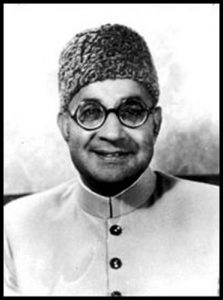
Following the advice given by the founding father of the nation, Governor-General Muhammad Ali Jinnah appointed and invited the Finance Minister Liaquat Ali Khan to set up and run his administration in 1947. He was the first Prime Minister of Pakistan. If Jinnah founded Pakistan, Liaquat Ali Khan established it. He laid down the main lines of policy, domestic and foreign, that afterward lead the country. He was assassinated in 1951, and Khawaja Nazimuddin took the office.
Sir Khawaja Nazimuddin (17 October 1951 – 17 April 1953)
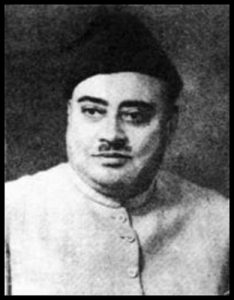
Nazimuddin became Prime Minister of Pakistan after the assassination of Liaquat Ali Khan in 1951. He is noted as being the first Bengali leader of Pakistan who ruled the country first as the Governor-General (1948–1951) and later as the Prime Minister (1951–1953). He left the office when Governor-General Malik Ghulam Muhammad dissolved his government in 1953.
Mohammad Ali Bogra (17 April 1953 – 12 August 1955)
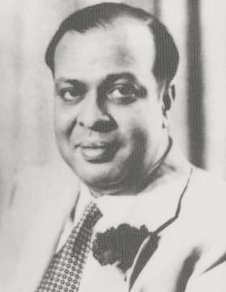
He was a Pakistani politician, statesman, and a career diplomat who served as third Prime Minister of Pakistan, appointed in this capacity in 1953 until he stepped down in 1955. A diplomat and relatively unknown personality to Pakistani politics, Bogra established the Ministry of Talents but his administration was dismissed in 1955 by the Governor-General after the legislative elections in 1954.
Chaudhry Mohammad Ali (12 August 1955 – 12 September 1956)
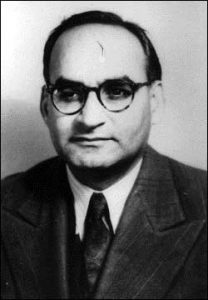
Chaudhry Muhammad Ali, best known as Muhammad Ali, was the fourth Prime Minister of Pakistan. He played an important role in determining how the new Pakistani state would be administered. A first appointment from the coalition of Muslim League, Awami League, and the Republican Party, he was removed by his own party following the successful vote of no-confidence movement.
Hussain Shaheed Suharwardi (12 September 1956 – 17 October 1957)
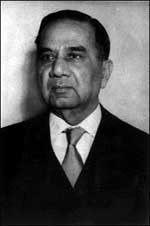
Hussain Shaheed Suharwardi was a barrister and politician in South Asia. He held the positions of Prime Minister of Bengal (1946-1947) and Prime Minister of Pakistan (1956-1957). Popular for his wit in law, Suhrawardy resigned due to the loss of control over his party and support from the coalition partners in his administration
Ibrahim Ismail Chundrigar (17 October 1957 – 16 December 1957)
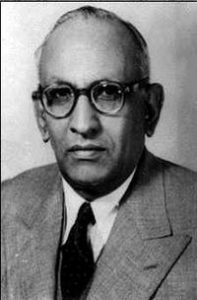
The shortest tenured Prime Minister, Chundrigar established his administration but was removed within mere 55 days into his term amid a vote of the no-confidence movement led by majority votes of the Republican Party and Awami League. He was the sixth Prime Minister of Pakistan and remained on this post for only two months. Chundrigar was more renowned as a constitutional lawyer than a politician; and obtained a lot of popularity, when he pleaded the case for the restoration of the first Constituent Assembly of Pakistan, by Molvi Tamiz-ud-din.
Feroze Khan Noon (16 December 1957 – 7 October 1958)
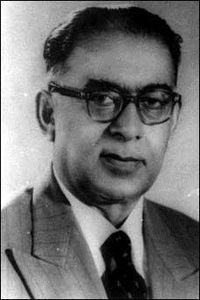
Sir Malik Feroz Khan Noon, the seventh elected Prime Minister of Pakistan, was born in Lahore in 1893. He was an important politician during the Freedom Movement and a prominent figure after the independence of Pakistan and severed on many significant designations. A lawyer, Sir Feroze Khan’s administration collapsed after his party’s own President Iskander Mirza enforced martial law in 1958 in a view of extending his term of office.
Nurul Amin (7 December 1971 – 20 December 1971)
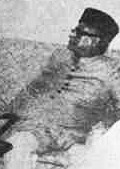
Nurul Amin referred to as the ‘Patriot of Pakistan’, was a prominent Pakistani leader, and a jurist who served as Prime Minister of Pakistan and as the first and only Vice President of Pakistan. He is noted as being the last Bengali leader of Pakistan. His term of only 13 days as Prime Minister was the shortest served in Pakistani parliamentary history. After the general elections in 1971, Amin was invited to be appointed as Prime Minister under Yahya’s administration; yet he was also the first and the only Vice President of Pakistan from 1970 to 1972, leading Pakistan in the Indo-Pakistani War of 1971.
Zulfikar Ali Bhutto (14 August 1973 – 5 July 1977)
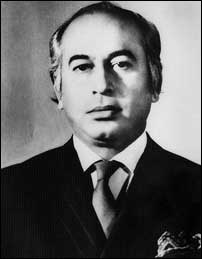
Bhutto resigned as president to become empowered as the Prime Minister after the Constitution was re-promulgated, which established a parliamentary system of government. He was deposed in martial law in 1977 by his appointed army chief, General Zia, July 1977. Soon afterward, Bhutto was imprisoned. He was sentenced to death (March 18, 1978) on the charge of having ordered the assassination of a political opponent in 1974; after an appeal to a higher court, Bhutto was hanged, despite appeals for clemency from several world leaders.
Muhammad Khan Junejo (24 March 1985 – 29 May 1988)
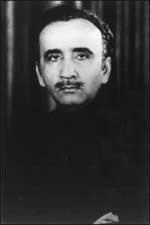
Junejo was elected as the tenth Prime Minister of Pakistan in non-party-based elections in 1985, therefore he was elected on an Independent ticket but he served the Pakistan Muslim League while before entering the office and during office. He was dismissed by the president after the Eighth Amendment to the Constitution.
Benazir Bhutto (2 December 1988 – 6 August 1990)
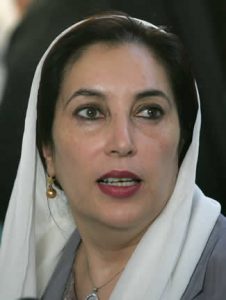
Benazir Bhutto became the first woman in Pakistan to head a major political party, in 1982. Six years later, she became the first woman elected to lead a Muslim state. A Pakistani politician who became the first woman leader of a Muslim nation in modern history. She served two terms as prime minister of Pakistan, in 1988–90 and in 1993–96.
Ghulam Mustafa Khan Jatoi (6 August 1990 – 6 November 1990)
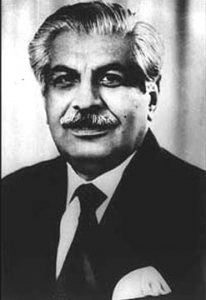
Ghulam Mustafa Jatoi was a Pakistani politician who served as the Prime Minister of Pakistan in an acting capacity for three months. Mr. Jatoi was appointed Prime Minister after the dismissal of the Benazir Bhutto government on corruption and incompetence charges by President Ghulam Ishaq Khan. In protest at the autocratic tendencies of Nawaz Sharif, Mr. Jatoi joined hands with the opposition led by Bhutto in launching a movement against the Sharif government, resulting in its dismissal in 1993.
Nawaz Sharif (6 November 1990 – 18 April 1993)
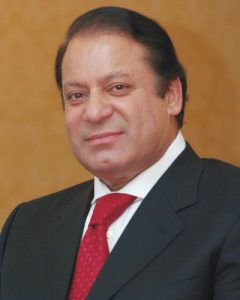
Sharif was elected as the 13th Prime Minister of Pakistan on 1 November 1990. President Ghulam Ishaq Khan dissolved his government in April 1993, which was later reinstated by the Supreme Court of Pakistan. Sharif survived a serious constitutional crisis when President Khan attempted to dismiss him under article 58-2b, in April 1993, but he successfully challenged the decision in the Supreme Court. Sharif resigned from the post negotiating a settlement that resulted in the removal of the President as well, in July 1993.
Mir Balakh Sher Mazari (18 April 1993 – 26 May 1993)
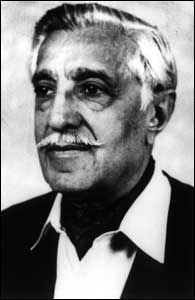
Mir Balakh Sher Mazari was a Pakistani politician. He served as the Prime Minister of Pakistan and replaced Nawaz Sharif. After dissolving both, the national and the provincial assemblies, Khan appointed Mazari as the caretaker prime minister.
Nawaz Sharif (26 May 1993 – 8 July 1993)
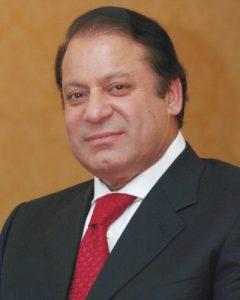
The year 1993 saw political unrest within Pakistan as president Ghulam Ishaq Khan and prime minister Nawaz Sharif dueled for supremacy. Khan dissolved Sharif’s government, only for it to be restored by a Supreme Court verdict. Sharif is the longest-serving prime minister of Pakistan having served a total of more than 9 years.
Moin Qureshi (8 July 1993 – 19 October 1993)
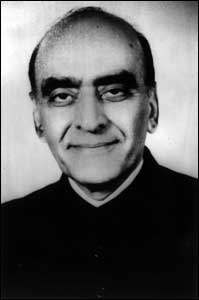
Moinuddin Ahmad Qureshi was a Pakistani American economist and civil servant who served as Caretaker Prime Minister of Pakistan in an acting capacity from July to October 1993. Qureshi also served as the senior vice president of the World Bank.
Benazir Bhutto (19 October 1993 – 5 November 1996)
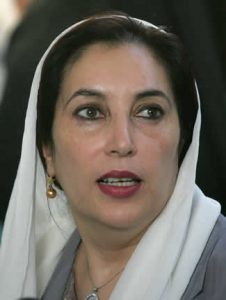
Benazir Bhutto was re-elected for a second term, in 1993. She survived an attempted coup in 1995. Bhutto’s government was dismissed by President Farooq Leghari in November 1996.
Malik Meraj Khalid (6 November 1996 – 17 February 1997)
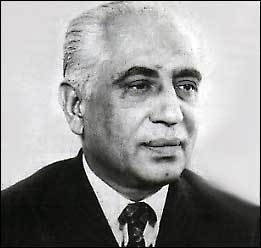
Malik Meraj Khalid was a Pakistani advocate, left-wing politician, and Marxist philosopher who served as Prime Minister of Pakistan in an acting capacity from November 1996 until February 1997. As Prime Minister, Meraj Khalid continued to live his simple life and his Lahore home remained as accessible as ever.
Nawaz Sharif (17 February 1997 – 12 October 1999)
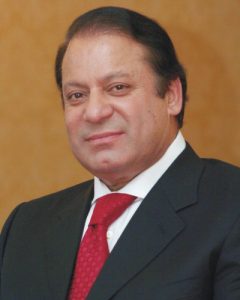
Sharif was re-elected as Prime Minister with an exclusive mandate from all over Pakistan for a non-consecutive second term, in February 1997. His government was deposed by General Pervez Musharraf in October 1999, and martial law was imposed on the entire country.
Mir Zafarullah Khan Jamali (23 November 2002 – 26 June 2004)
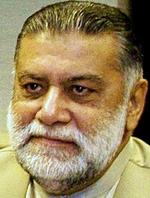
Jamali was elected as the Prime Minister of Pakistan in November 2002. He continued the foreign and economic policies of Pervez Musharraf but could not complete his term and resigned from the post in June 2004. He was the first and only elected prime minister from Balochistan, Pakistan.
Chaudhry Shujaat Hussain (30 June 2004 – 26 August 2004)
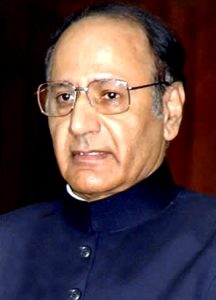
The Parliament elected Chaudhry Shujaat Hussain as the Prime Minister and to serve a 50-day period before the Shaukat Aziz, permanently replaces him. Shujaat temporarily became Prime Minister because Aziz can not be elected Prime Minister, as he was a member of the senate.
Shaukat Aziz (28 August 2004 – 15 November 2007)
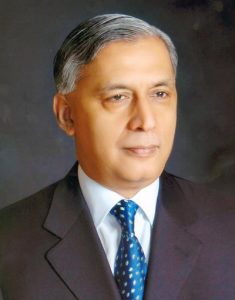
Shaukat Aziz was sworn in as 22nd Prime Minister of Pakistan. Aziz took the office of Prime Minister in August 2004. He left the office at the end of the parliamentary term, in November 2007, and became the first Prime Minister of Pakistan who left the seat after completion of the parliamentary term.
Muhammad Mian Soomro (16 November 2007 – 24 March 2008)
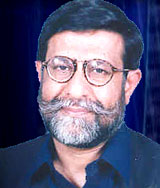
Soomro was appointed as caretaker prime minister on 15 November 2007, at the expiration of the term of the previous prime minister, Shaukat Aziz, ahead of a new parliamentary election. On 16 November, Soomro was sworn in as prime minister by President Pervez Musharraf. His term ended on 25 March 2008, when Syed Yousaf Raza Gilani was sworn in as prime minister.
Yousaf Raza Gillani (25 March 2008 – 19 June 2012)
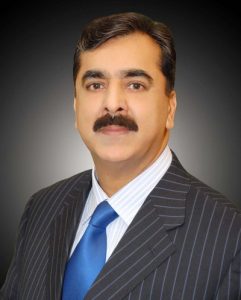
Gillani was elected as prime minister in March 2008. After weeks of consideration, the elite members of the Central Executive Committee accepted the nomination of Gillani over populist Ameen Faheem for the post of prime minister. He was disqualified from his seat in the parliament in April 2012 by the Supreme Court for contempt of court.
Raja Pervaiz Ashraf (22 June 2012 – 24 March 2013)
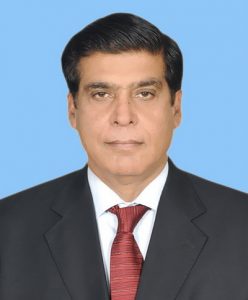
Raja Pervaiz Ashraf is a Pakistani businessman, agriculturist, and politician who served as the prime minister of Pakistan. Ashraf assumed the post of Prime Minister in June 2012, after Yousaf Raza Gillani was disqualified over contempt of court charges.
Mir Hazar Khan Khoso (25 March 2013 – 5 June 2013)
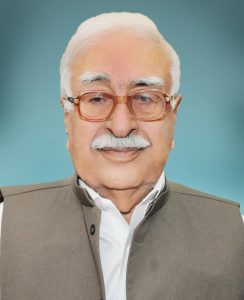
Mir Hazar Khan Khoso was a Pakistani jurist who was the Caretaker Prime Minister of Pakistan from 25 March to 5 June 2013, out of four nominees coming from both the opposition and the dissolved government.
Nawaz Sharif (5 June 2013 – 28 July 2017)
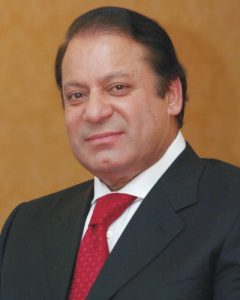
On 5 June 2013, Sharif took office for a third non-consecutive term. He took oath under Asif Ali Zardari, the then-president of Pakistan. He was disqualified on 28 July 2017 by the Supreme Court from holding public office as he had been dishonest in not disclosing his employment in the Dubai-based Capital FZE company in his nomination papers.
Shahid Khaqan Abbasi (1 August 2017 – 31 May 2018)
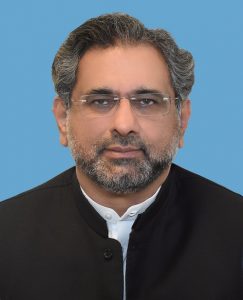
Shahid Khaqan Abbasi is a Pakistani politician and businessman. The Parliament elected Shahid Khaqan Abbasi as the Prime Minister after the disqualification of Nawaz Sharif. His term expired as the 2018 Pakistan Election was set to be held.
Justice (Retd) Nasir-ul-Mulk (1 June 2018 – 18 August 2018)

Nasirul Mulk served as the 7th Caretaker Prime Minister of Pakistan who previously also served as the 22nd Chief Justice of Pakistan. A jurist by profession, he was nominated as Chief Justice by Prime Minister Nawaz Sharif.
Imran Khan (18 August 2018 – 10 April 2022)
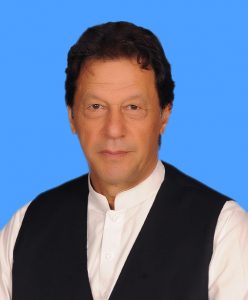
General elections were held on 25 July 2018, which resulted in the Pakistan Tehreek-e-Insaf winning 156/342 seats. making a coalition Government of 177 members including PTI, MQM, BAP, and others. On 18 August 2018, Imran Khan was elected as Prime Minister of Pakistan.
Shahbaz Shareef (11 April 2022- Cont.)
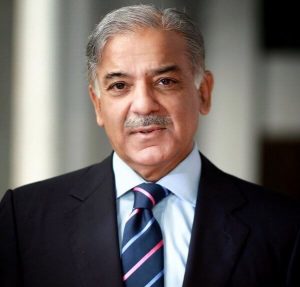
Mian Muhammad Shehbaz Sharif is a Pakistani politician who has been the country’s 23rd and current prime minister since April 11, 2022. He is the president of the Pakistan Muslim League at the moment. He has previously served as the Chief Minister of Punjab three times, giving him the province’s longest-serving Chief Minister. Shehbaz Shareef was elected to the Punjab Provincial Assembly in 1988 and the Pakistan National Assembly in 1990.
We hope it was a helpful read for you.













